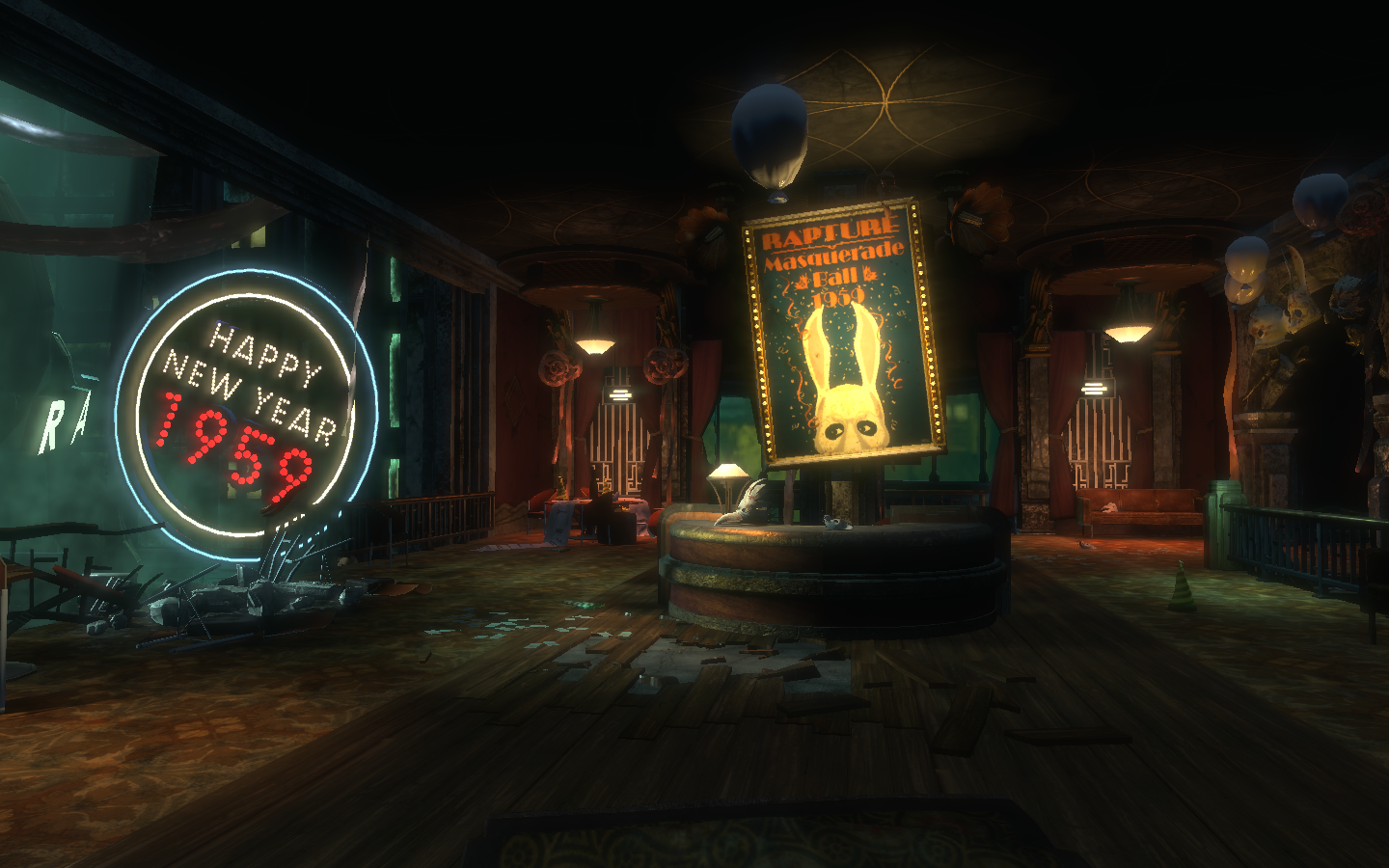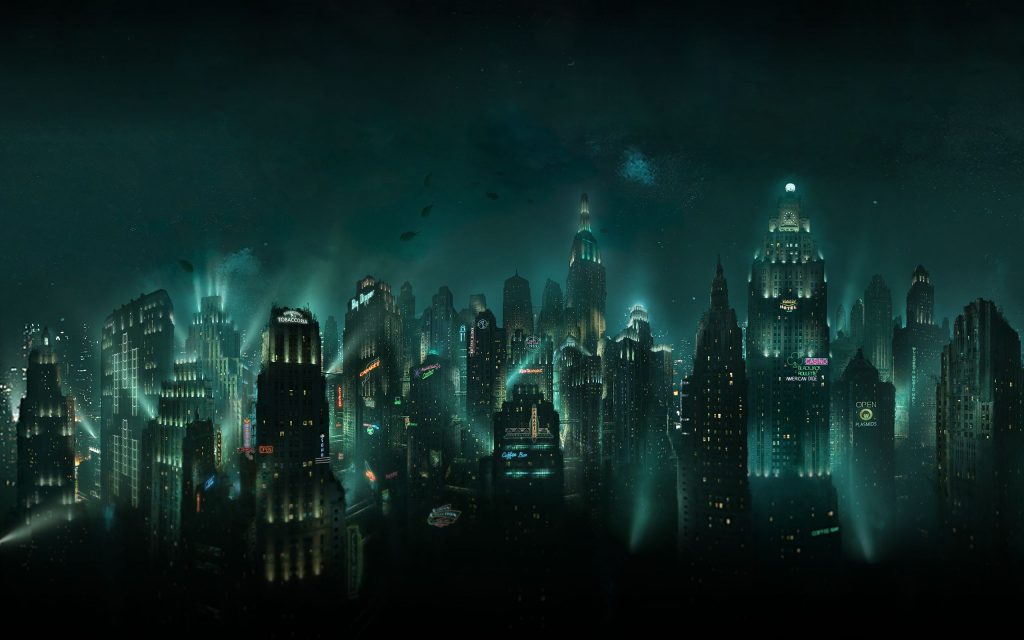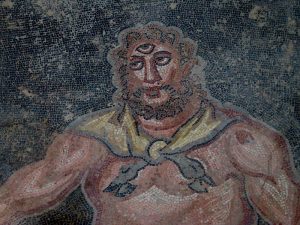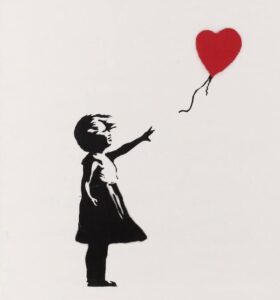Bioshock: Andrew Ryan’s objectivism
4 min read
fonte immagini: bioshock.fandom.com
When thinking about a videogame, we naively tend to consider it as an unpretentious entertainment product. It is commonly believed that a videogame is something which helps people spend a couple of hours in a thoughtless and carefree way. However, this situation has changed in the last decade thanks to technological progress and more powerful consoles and computers. Indeed, due to completely interactive game formats, we have witnessed the appearance of videogames facing challenging topics. Some of them have been even transformed into authentic philosophical manifestos. Among all of them, Bioshock stands out.
Bioshock was first launched in 2007 with the omonimous game, which was System Shock’s successor, and its philosophical nature was visible from the beginning. After the plane accident that starts the game, the gamer goes through the doors of a lighthouse and finds himself in front of a high-impact scene: as soon as the lights light up the place, you will see the majestic Andrew Ryan’s statue, the founder of the submerged city, above the words “No gods or kings. Only man.”

From now on the player descends, both metaphorically and literally, in Rapture’s objectivist dystopia; an underwater city “where the artist would not fear the censor, where the scientist would not be bound by petty morality, where the great would not be constrained by the small”. Therefore, it becomes immediately clear that the philosophical base of the videogame is found in Ayn Rand’s Atlas Shrugged, her best-known novel.
The same name of the city’s founder recalls Rand’s name and the character who helps the player through Rapture’s hallways is called Atlas. Around the city there are also many posters which say “Who is Atlas?”: an evident reference to “Who is John Galt?”, the recurrent question in Ayn Rand’s novel. Andrew Ryan’s philosophy is strongly inspired by Ayn Rand’s objectivism and the player can discover it through several audios inside the game.
Tired of sharing the result of his sacrifice with the rest of the society, Andrew Ryan gathers, as John Galt did, the best minds of the country to found a new society, isolating himself in the depth of the ocean inside Rapture. The city is governed by the Great Chain, an allegorical term coined by Andrew Ryan to describe a self-regulating market without external input, authorities or governments.
However, what the player observes is a crumbling and abandoned city. Gloomy atmospheres and creepy encounters occur on a daily basis within a city that seems to have frozen in a specific time: New Year’s Eve 1958. While exploring the city, the player finds places and audio diaries which tell stories of rebellion belonging to a propaganda presented as the peak of individual freedom by Andrew Ryan. Such freedom is contrasted by a fake altruism that seems to be useful only to those “parasites” whose weakness and necessity to be socially supported are demonised and dehumanised.

Passing through the underground corridors of the city, a story of selfishness and abuse of power unfolds; a story that proves how the absence of moral restrictions behind progress could lead to extreme consequences. The few inhabitants remaining in the city are disfigured and mentally insane. Rapture’s commercial business and daily life drastically changed after the discovery of ADAM, a substance that is able to manipulate the human genome. Everyone appreciates its aesthetic and functional advantages and they take it in order to feel perfect and elevated compared to the others.
The dystopian nature of this society can be found in the complete absence of ethics which characterises such business: to extract this substance, indeed, the industry uses young girls who are snatched from their families. The city economy takes advantage of the complete physical dependence on itself. In this way, Rapture starts losing more and more of its humanity.
The city visited by the player is completely deprived of any positive aspect; a fallen glory. Throughout the city the loudspeakers crackle the unstoppable Ryan’s propaganda. The gamer is constantly separated from those few characters who seem to keep a certain clarity of mind. The game, indeed, is purposely made to drown the gamer in a strong solitude, a choice that cleverly mirrors the individualist nature of such a dystopia.
Bioshock makes people reflect on the human condition through some unexpected plot twists. It leads its gamers into thinking what can transform humans in such a way and which are the necessary decisions and limits to survive in a society. Moreover, it makes videogames users meditate on the medium itself: what distinguished a free man from a slave?
Bioshock is composed of two other games. The second is still set in Rapture, where the topics and limits of collectivist philosophy are approached; while the third (and last) game guides players from the depth of the ocean to Columbia, the flying city, where American exceptionalism dominates every aspect of society. Bioshock deals with complex and human issues and it digs deep into the ideologies that it represents. It makes the worst side of society emerge and it shows the consequences of a kind of extremism which hides sneaky egoism behind promises of freedom.
Source text: https://www.antropia.it/la-saga-di-bioshock-oggettivismo/

Sono laureata in Lingue e Letterature Straniere a Venezia, città da cui ho imparato l’attenzione ai dettagli nascosti dell’esistenza, nonché l’elogio della lentezza (come direbbe Kundera). Ho sempre visto la letteratura, l’arte, la musica e il cinema come i cardini fondamentali della mia vita, le cui correnti mi hanno reso la persona che sono oggi.







